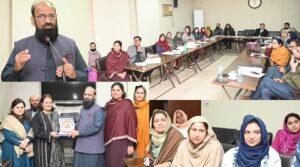Although the issue of mental health has been raised in previous years, it will obtain the best billing in the event, which will also cover the prevention and control of other non -communicable diseases (EDE), such as cardiovascular diseases, cancer, diabetes and chronic respiratory diseases. EVs remain the main causes of death and disability worldwide. They are closely connected: for many people, physical and mental conditions overlap, demanding integrated approaches for attention.
The challenge scale
“This is the first time we can inform that more than one billion people have a mental health condition,” Dr. Devora Kestel, director Inter interim of non -communicable diseases and mental health/NMH in the World Health Organization (WHO). “Only nine percent of people with depression, the most common mental health condition, receive support. Only 40 percent of people with psychosis receive help. This means that countries must find more and better ways to develop services to ensure that this attention is available and easy to access.”
Even when there are services, they are often inaccessible due to costs, distance or lack of integration with other health support. Stigma is also a significant factor that deter people who live with the mental health of seeking help.
UNICEF is providing women in Sierra Leone for advice of mental health and psychosocial support.
The political statement that must be adopted at the meeting also aims to promote the exchange of knowledge and extended financing. “Member States have decided to emphasize some problems that are common to all noncommunicable diseases, but some that are very specific to mental health, such as the mental health of children and young people, suicide prevention and efforts to develop services at the community level,” said Dr. Kestel.
Clear ties between mental and physical illness
The propagation of NCDS is largely driven by five main risk factors: use of tobacco, harmful use of alcohol, insufficient physical activity, unhealthy diets and air pollution. Limited access to diagnosis, treatment and care services also contributes significantly.
The risk factors between mental and physical illness overlap significantly, according to Dr. Kestel. “The promotion of lifestyle interventions that encourage physical activity or healthy diet, or eliminate tobacco and alcohol, are valid for both types of diseases.
Now, he says, it’s time for politicians to act. “We have heard a lot about the importance of mental health in recent years. We need commitment. We need leaders to understand that there are problems, processes and mechanisms that can be established to ensure that there is access to mental health care, from the promotion of a healthy lifestyle to guaranteeing a person -centered approach to the treatment and attention with a clear role for people with lived experience.”

Migrants and refugees can be exposed to several stress factors that affect their mental health and well -being.
The UN high level meeting represents an opportunity to put mental health and NCD firmly on the global agenda. The statement will not be, as Dr. Kestel herself, a “magical document” said, but can establish a new course, unite countries and demonstrate that accessible and fair mental health care is possible in every corner of the world.




